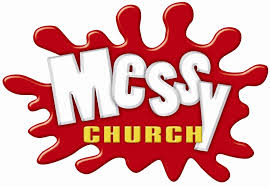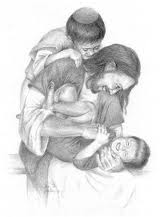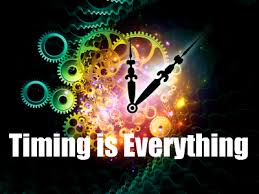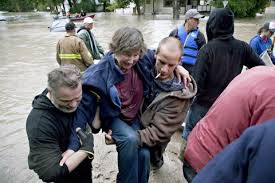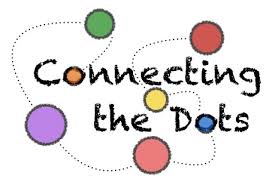 There is a lot of discussion and confusion around the word ‘church’ these days. What is the church, and who is part of the church? How does one join or get in on this faith community? Is the church some mystical, invisible, world wide, secret society who have a covert, or sometimes not so covert, mission to convert everyone to the religion of Christianity? Is there a secret hand shake to identify whose in, or do you have to have the fish symbol on your car to belong to the club? Is the church a meeting in a building on Sunday morning at 11am where some people called Christians gather to practice some strange rituals like the Eucharist, or listen to a talking head trying to be a stand up comedian telling jokes that are not all that funny?
There is a lot of discussion and confusion around the word ‘church’ these days. What is the church, and who is part of the church? How does one join or get in on this faith community? Is the church some mystical, invisible, world wide, secret society who have a covert, or sometimes not so covert, mission to convert everyone to the religion of Christianity? Is there a secret hand shake to identify whose in, or do you have to have the fish symbol on your car to belong to the club? Is the church a meeting in a building on Sunday morning at 11am where some people called Christians gather to practice some strange rituals like the Eucharist, or listen to a talking head trying to be a stand up comedian telling jokes that are not all that funny?
Is the church not Jesus followers ‘being and doing’ the words and works of Jesus 24/7 where they work, live, or play? Is there any value in going to a sacred space and participating in the ageless sacraments with a community of Jesus followers we have committed to go on this journey with? What does it mean to be the church scattered and the church gathered? Are we to invite our friends who don’t go to church to come to an attractional gig or do we go to the people and be Jesus with skin on?
Here is my working definition of what the Church is. The Church is simply the ‘the invisible and visible family of God’. (Ephesians 1:5; 3:14) Anyone who says “Yes” to the invitation calling us as estranged kids to come back home to the outstretched arms of Dad are welcome back with a party. (Luke 15;11-32) Only God knows for sure who is ‘in’ and who is ‘out’. That is not for us to judge. We will be surprised when one day we see who is all part of this great Family of God.
God’. (Ephesians 1:5; 3:14) Anyone who says “Yes” to the invitation calling us as estranged kids to come back home to the outstretched arms of Dad are welcome back with a party. (Luke 15;11-32) Only God knows for sure who is ‘in’ and who is ‘out’. That is not for us to judge. We will be surprised when one day we see who is all part of this great Family of God.
This Family of God called the Church is then called to be and speak the Good News of a new country or culture called the Kingdom of Heaven. We are really resident aliens who are citizen’s of a different country, yet fully engaged in making this world a better place. (Heb. 11:9; I Peter 2:11)
The Church is to be ‘colonies of Heaven’ here on earth. We are called to be living icons reflecting the culture of this new country and giving our full allegiance to King Jesus. The Church is part of this Kingdom or country, but the Kingdom of Heaven is much larger than the Church. We don’t own Jesus, nor do we have the corner on truth. The fact is that sometimes the organized church doesn’t always reflect or demonstrate what the Kingdom of Heaven is really like when we clamor for power and money, when we back stab and betray each other, and when we abuse or neglect the little, and the least. 
The Church is a part of a bigger deal that is coming down. The Kingdom or country ruled by King Jesus will restore all of creation back to God’s original idea. A leopard will lie down with a goat. (Is 11:6) There will be no more war and poverty. (Is.2;4) All tribes and nations will sit together at the great Feast. (Luke 13:29-30) Children, the poor, and women will lead. (Is.11:6, Matt. 18:2-4; ) It is an upside down Kingdom that has come and is coming.
Justice, peace, freedom, healing, reconciliation, redemption, and unity with diversity are all themes of the song of the Kingdom that are being sung all around us, and like a tuning fork, are ringing within us if we only stop and listen. (Luke 10:9; 17:21)
of the Kingdom that are being sung all around us, and like a tuning fork, are ringing within us if we only stop and listen. (Luke 10:9; 17:21)
We respond to the song of the Kingdom when we stand in awe at the beauty of the Creator in a rainbow; when we reconcile with someone who has hurt us; when we hear the heart cry for justice coming from a child working in a sweat shop, and we refuse to buy clothes from the companies profiting from such injustice; when we say ‘No’ to racism, or the oppression of any marginalized group of people by being their friends and speaking out on their behalf; and when we care for the environment by planting an organic garden, or cleaning up some trash.
The Church scattered and gathered is to help connect people to this song of the Kingdom being sung in us and around us. The Church is to be this mysterious paradox between the invisible, scattered community of God as well as a visible, gathered, local expression of this community. (Acts 2:46; 5:12; Romans 16:5; I Cor 1:2)
In my observation and personal journey, it is so easy to veer to one side or the other. We can claim to be part of the ‘church invisible’ where we are living out our faith in our neighborhood, work places, school, and places of play 24-7, yet rarely, or never commit to gather with a group of Jesus followers to be a visible demonstration of what the upside down Kingdom culture of Jesus looks like.  This view of church as an amorphous blob or a community of ‘me and God’ is not a full or clear picture of church.
This view of church as an amorphous blob or a community of ‘me and God’ is not a full or clear picture of church.
People need to see a visible, practical, and local expression of a community of followers of Jesus living out Kingdom culture (verba visibilia). As Jesus said, “They will know you are my apprentices by how you love one another. (John 13:35)” How we love one another is a sign and commercial for what the culture of the new country and Kingdom of Heaven is to be like.
“As I often say, the greatest sign and wonder is when two or three Christians actually get along by passing the test of time, and pressing through conflict. Many days I have more faith to raise the dead than I do that two Christian can walk out being faithful to and forgiving one another.”
This is not to say we as the gathered church are perfect in any way. We are all broken people in need of the mercy and grace of God. We are an imperfect icon of Jesus and His Kingdom. We are like a stained glass window with some cracks. What lacks integrity is when we are not honest with our sin, and hide behind religious pretense or masks.
There are many who have given up gathering with other followers of Jesus, and committing to a visible faith community. (Hebrews 10:25) The reasons for not gathering or committing to a visible church are various and sundry. We become disillusioned around the dysfunction and politics of the church. We suffer disappointment around unfulfilled, lofty expectations of what we thought church would be, or we carry the wounds of unresolved hurt experienced through relationships in the church. We become rugged individualists who choose to walk out our faith journey on on our own. We deem community life to just be to hard, or sometimes we are too busy with other activities to carve out the time to gather with other Jesus followers. Its easier to sleep in on a Sunday than to make the effort to go to another ‘thing’.
community. (Hebrews 10:25) The reasons for not gathering or committing to a visible church are various and sundry. We become disillusioned around the dysfunction and politics of the church. We suffer disappointment around unfulfilled, lofty expectations of what we thought church would be, or we carry the wounds of unresolved hurt experienced through relationships in the church. We become rugged individualists who choose to walk out our faith journey on on our own. We deem community life to just be to hard, or sometimes we are too busy with other activities to carve out the time to gather with other Jesus followers. Its easier to sleep in on a Sunday than to make the effort to go to another ‘thing’.
For some folks, there is a deep seated fear of being used or taken advantage of by institutions and authority figures. It is clear that there is a growing distrust in our culture with big government, organized religion, and institutions that are meant to serve people, but instead are often self-serving. In the church culture, these people become Christian anarchists or iconoclasts who express a distaste for any leadership, organization, church buildings, rituals, and liturgy. 
On the other hand, many of us have been so consumed with running the church gathered that we don’t have time to develop any significant friends outside the church. We are so busy running church programs that we have no time for serving in our neighborhoods. Church becomes an isolated sub-culture that is so detached from the world that we have little effect.
We so called ‘Christians’ can sometimes be really weird, uptight, fearful folks. We fear the big bad world out there, so we hide in our holy huddles lobbing self-righteous diatribes about all the horrible sins outside the camp. The reality is that all those same sins come with us to church every Sunday often cloaked or hidden behind religious garb and flowery religious talk.
Because of the pressure or guilt some of us feel around converting our friends, we become abnormal and strange. We anxiously or zealously look for opportune moments to pigeon hole our friends and blurt out our scripted evangelistic presentation like a telemarketer spitting out their sales pitch on the phone. It comes across in a pushy, stiff or forced way that leaves our friends feeling used or that they are somehow inferior to us. If all we can talk about is ‘spiritual stuff in churchy language’ we come across as religious nut cases.
If we treat our friends as projects to convert, we communicate that we have relationships with an agenda. We then wonder why people want to avoid us. This is not to say that we should be embarrassed to tell our story of what Jesus is doing in our lives. There is a time to speak words. This needs to be as natural as sharing any Good News we have. The key is that our words carry weight when we are actually living Good News.
I think a healthy expression of church involves both the invisible, scattered reality alongside the visible, and gathered community of God. The invisible church without the visible expression is like a tree with sap but no trunk. The gathered church that is not scattered would be like keeping salt in the salt container never sprinkling it on food to bring out the flavor.
gathered community of God. The invisible church without the visible expression is like a tree with sap but no trunk. The gathered church that is not scattered would be like keeping salt in the salt container never sprinkling it on food to bring out the flavor.
In my next blog, I will discuss the bare essentials or unique practices and distinctives of what it means to be the church invisible and visible no matter what the culture or context.

